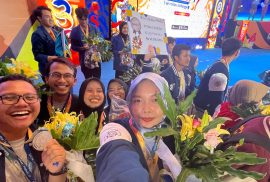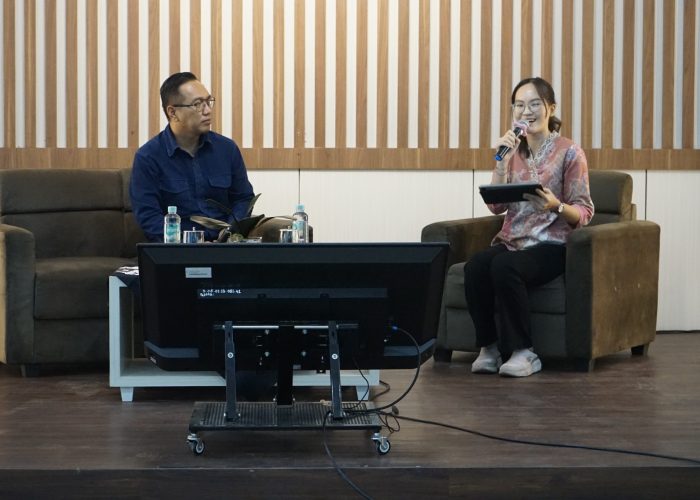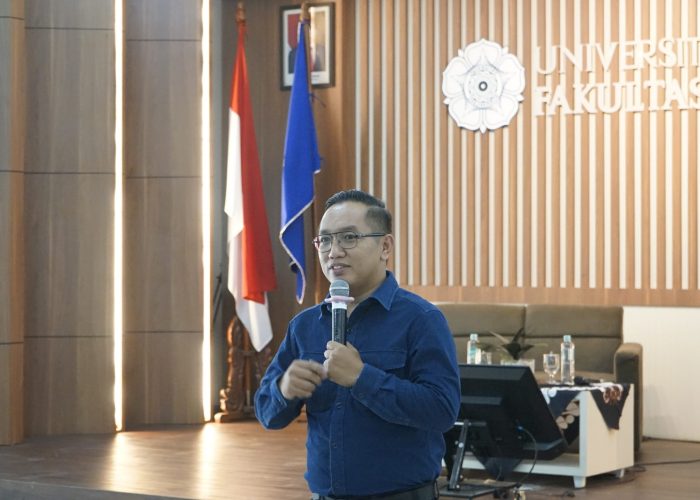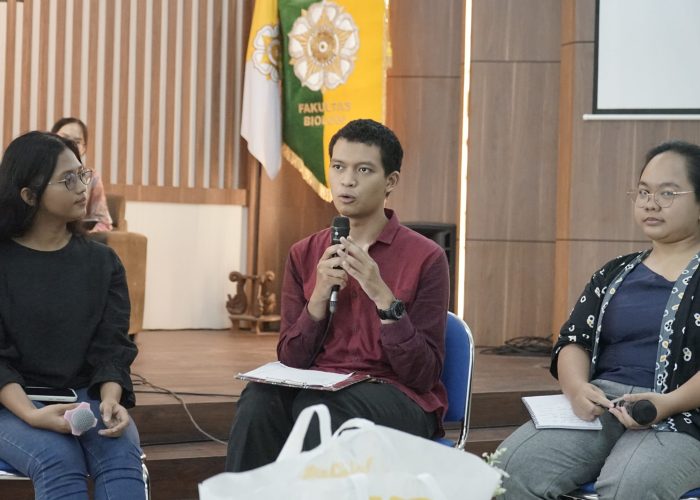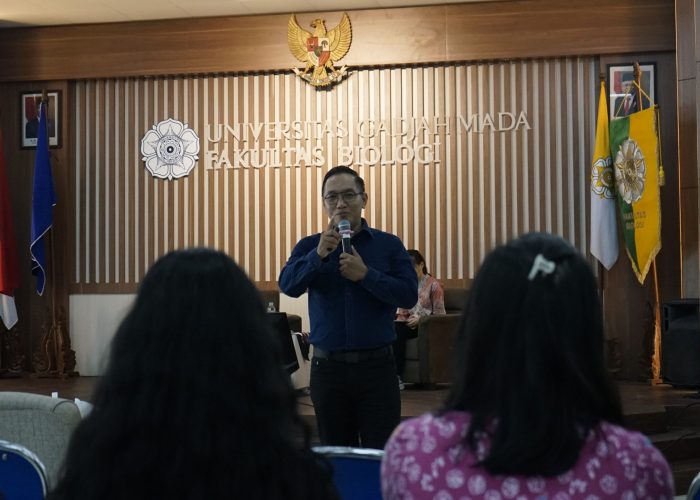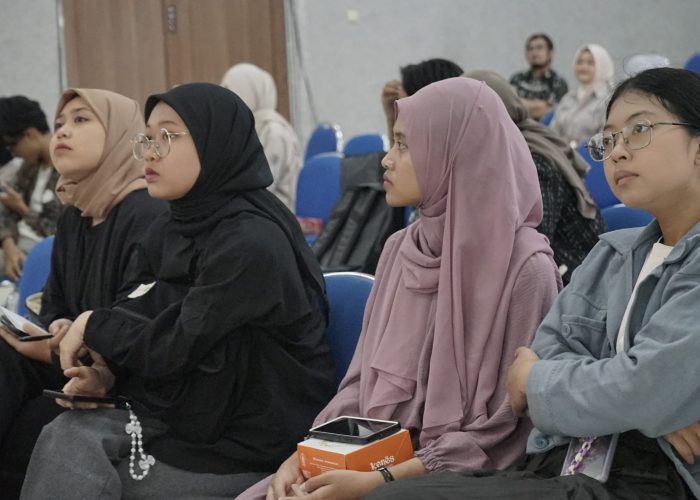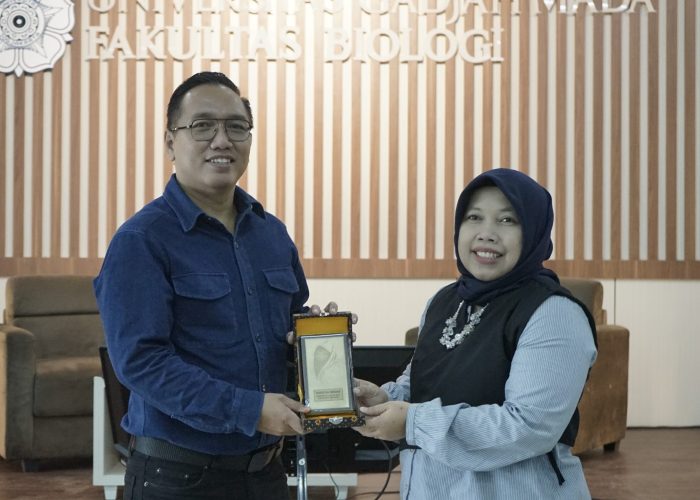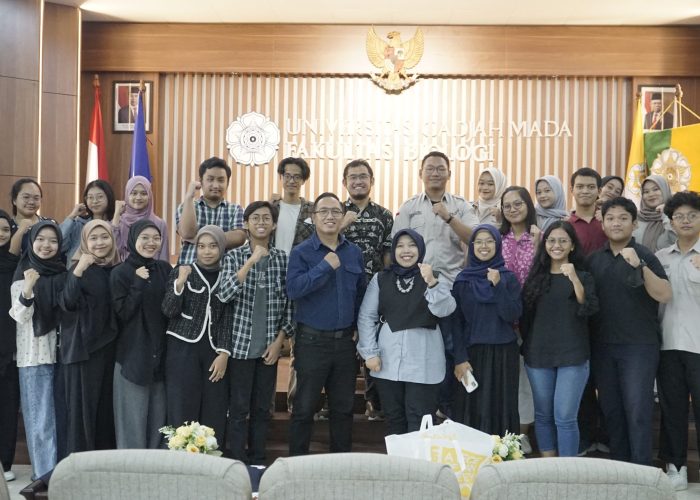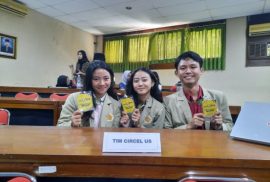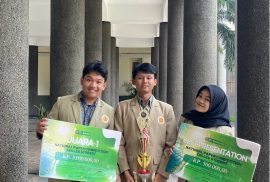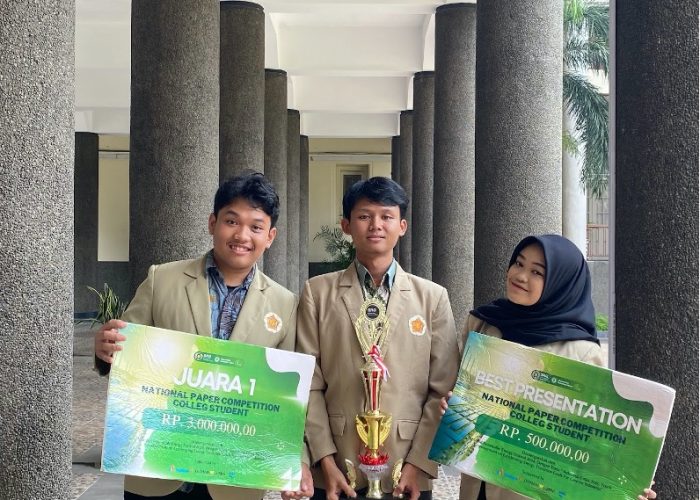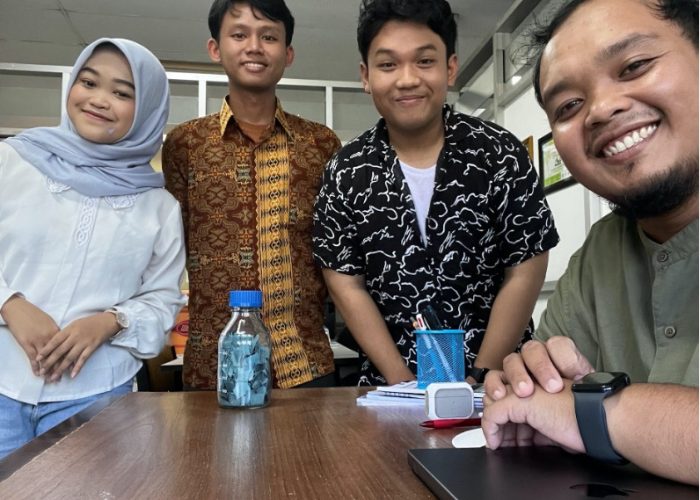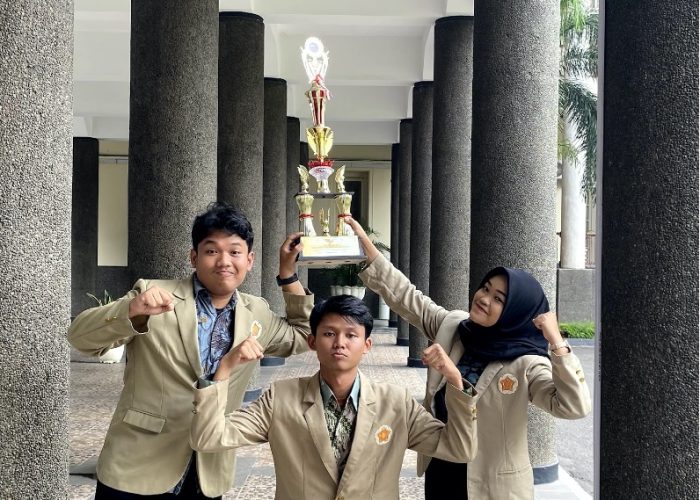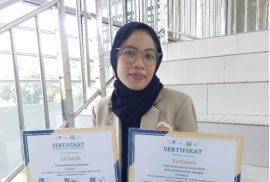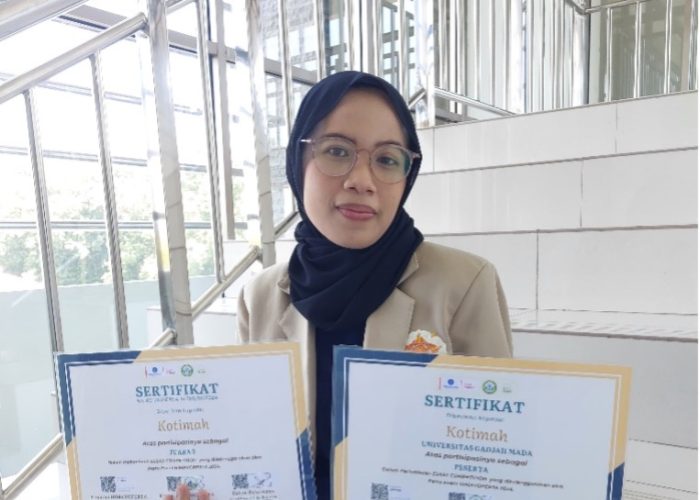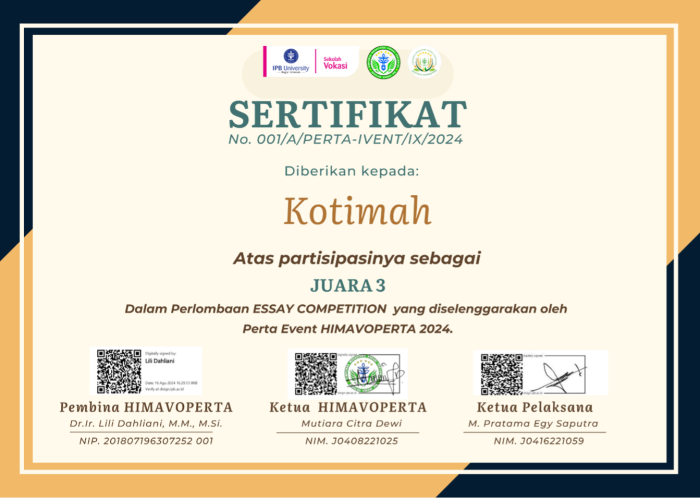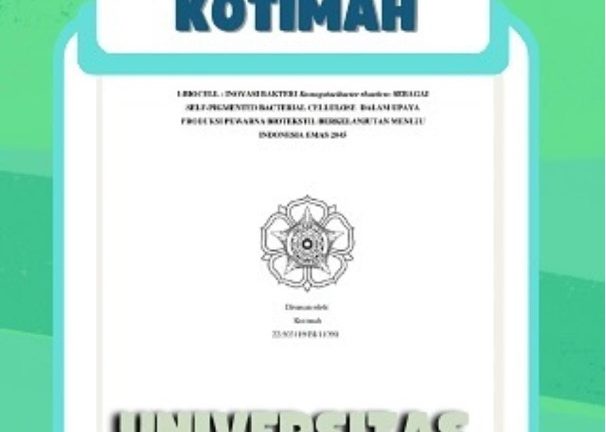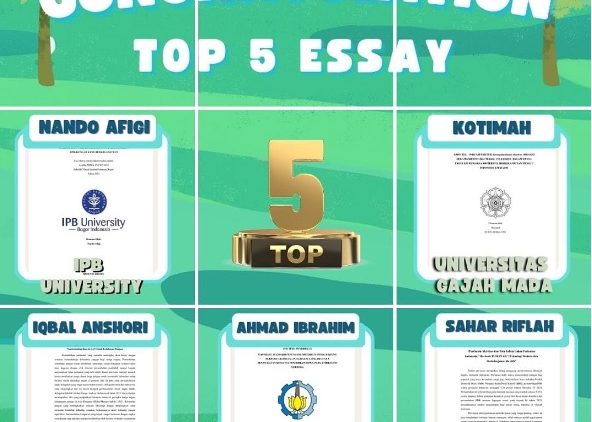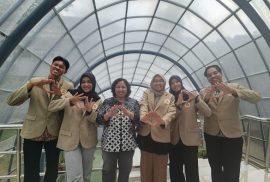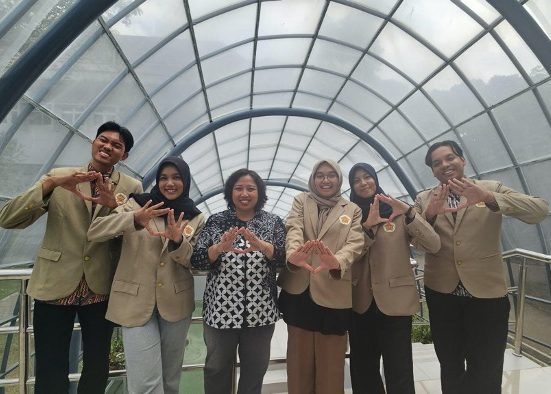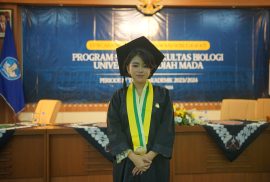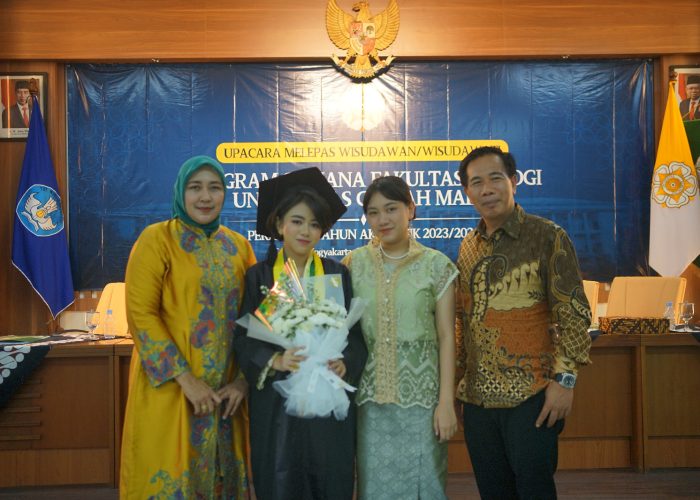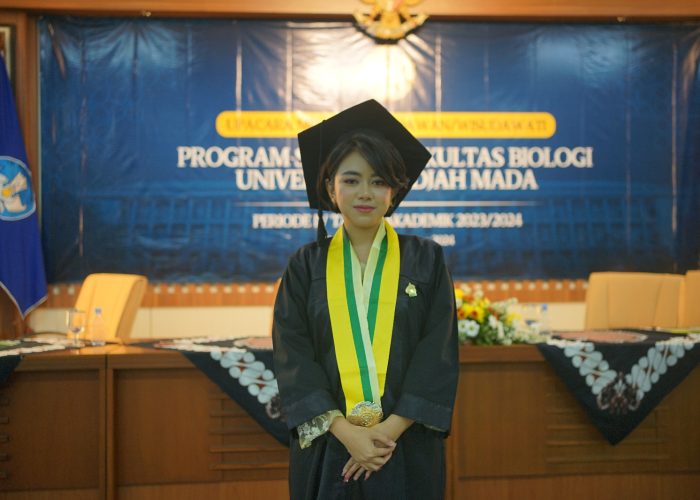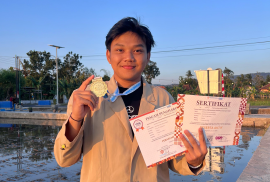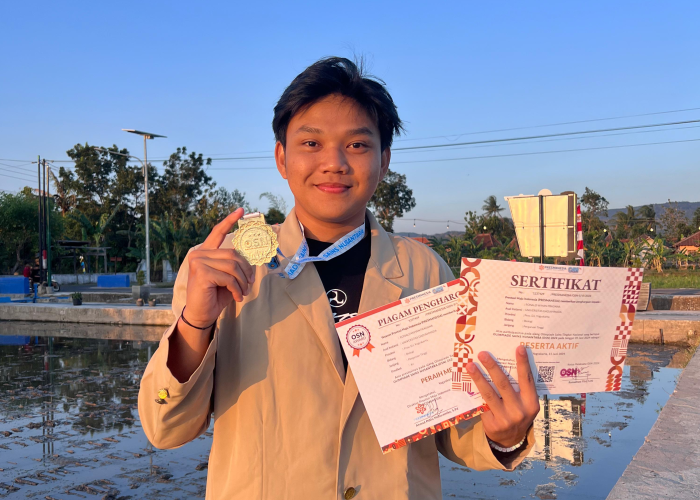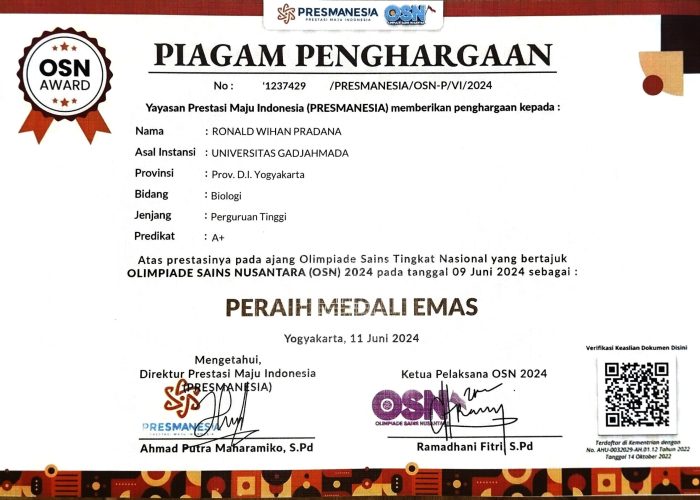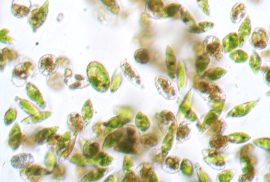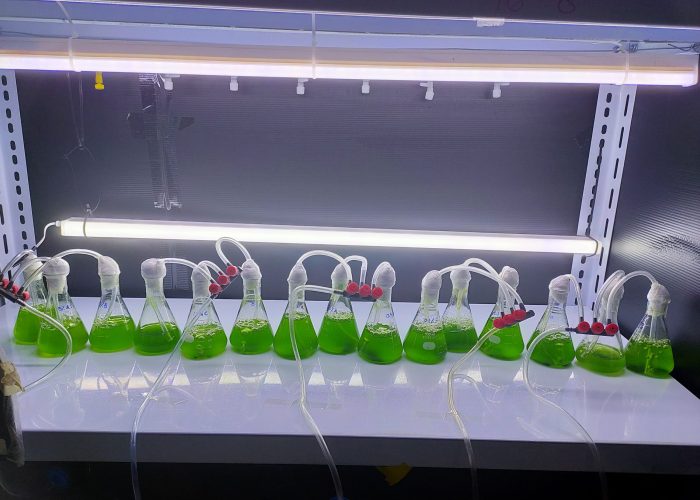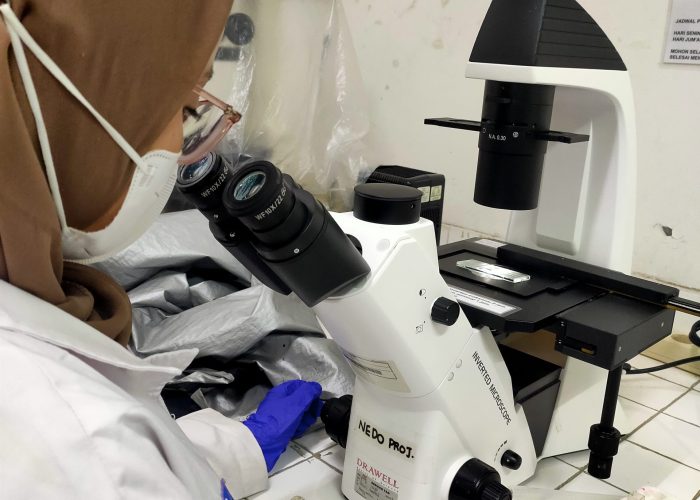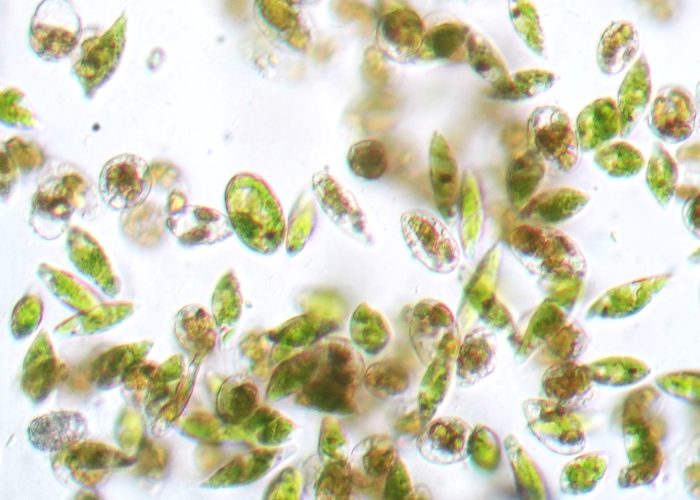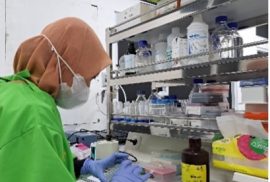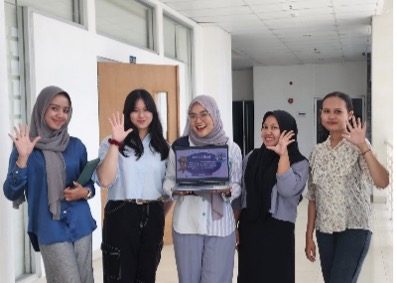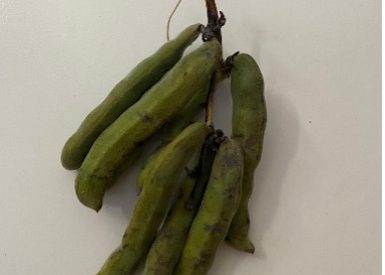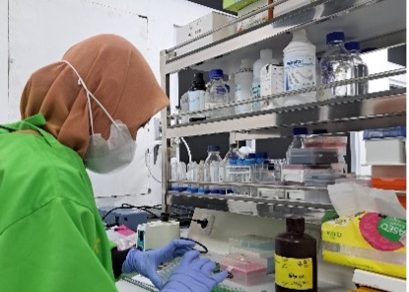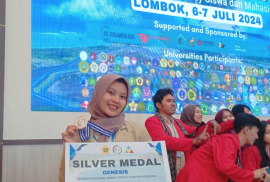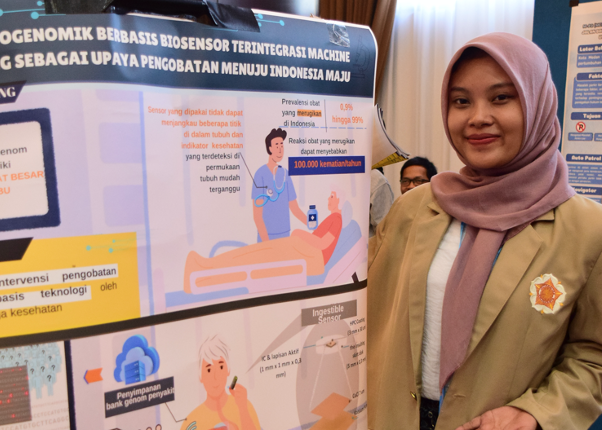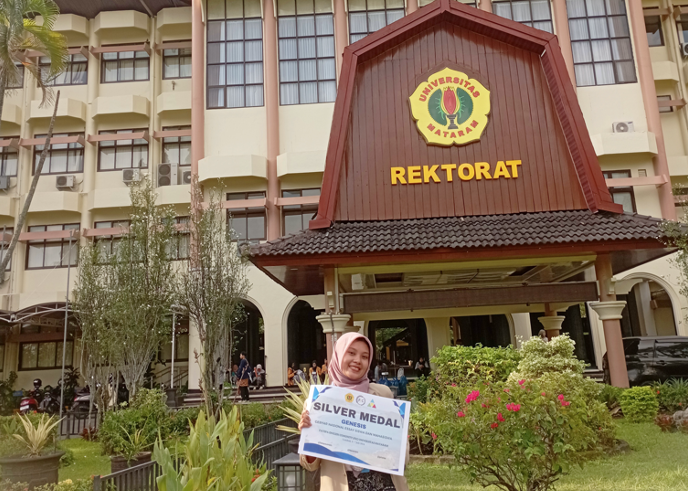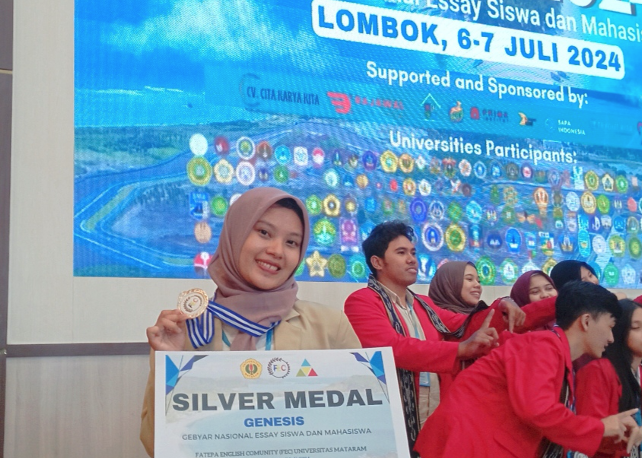Achivements
Yogyakarta, September 25, 2024 – A student team from the Faculty of Biology at Universitas Gadjah Mada achieved remarkable success by winning 3rd place in the ALCOFE XVIII 2024 Scientific Writing Competition, organized by Universitas Sebelas Maret (UNS) in person at the Werkudara Hall of the UNS Library. This national-scale competition took place from June 27 to July 17, 2024, for registration and abstract submission, followed by the full paper submission phase from July 27 to August 17, 2024, in two waves. The finalists were announced on August 26, 2024, after the full paper submission, and the competition concluded with the Grand Final presentation on September 24, 2024, followed by a field trip, awarding session, and farewell on the next day, September 25, 2024.
The team, named “CIRCEL US” (Circular Economy of Edible for Us), consists of K. William Hendri Panjaitan (2021), K.H. Mahadhevy Ryrathna Vidhantyka (2022), and Adi Citra Prima Pranata (2022), under the guidance of supervisor Tyas Ikhsan Hikmawan, S.Si., M.S., Ph.D. They presented a research based paper titled “Potential of Edible Packaging Biofilm from Cocoa Peel Waste as a Substitute for Food Packaging Plastic.”
In their paper, the CIRCEL US team addressed the issues of 651 million tons of cocoa produced in 2022, which has become one of Indonesia’s important export commodities, contributing significantly to the country’s foreign exchange earnings besides oil and gas. Most cocoa fruit utilization focuses only on the seeds for chocolate production, leaving cocoa peel as waste. Cocoa peel waste (CPW) or LKK (in Indonesia: Limbah Kulit Kakao) is one of the plantation wastes that is rarely utilized. However, cocoa peel contains high levels of fat and complex carbohydrates (cellulose content) at 37%, making it suitable as a biomaterial for edible film, especially in the food and pharmaceutical industries. The nutrient content of CPW is quite good, with dry matter at 88%, crude protein at 11.71%, crude fiber at 20.79%, fat at 11.80%, and nitrogen-free extract (NFE) at 34.90%.
It is noted that plastic consumption in Indonesia can reach 22.5 kg per person per year (excluding the large total population), with most plastic waste coming from food and beverage product consumption in 2022. The application of edible biofilm or EPB using organic waste is one effort to promote a circular economy and environmental conservation by minimizing the addition of plastic packaging in nature. Edible Packaging Biofilm (EPB) can be utilized in various sectors, such as food wrapping. By processing cocoa peel waste into more valuable EPB, it is hoped to improve the community’s economy and create a green environment with environmentally friendly and easily degradable products, thereby reducing daily plastic packaging usage.
EPB from LKK can produce renewable food packaging that is free from plastic materials, significantly reducing plastic-dominated waste when applied sustainably. Support and supervision from environmental agencies and the government fully influence the production flow and consumption effects of EPB, as well as the changes in impact when returned to the environment. The large number of Indonesians replacing plastic packaging with EPB-based packaging will accelerate the sustainability cycle in reducing plastic waste. In this case, EPB can be modified over time so that it can be developed and officially recognized by the local government that natural packaging derived from organic waste meets safety standards for consuming food along with EPB packaging.
Based on reviewed research sources, it has been proven that EPB has the potential to replace plastic packaging and reduce individual dependency on contributing to plastic waste. The processing of EPB packaging is organically sourced and easily implemented through the utilization of cocoa shell waste (LKK). After the consumption of EPB products, it can be considered an important foundation as a reinforcing factor for the principles of a circular economy and in line with global efforts in developing new renewable energy to support the achievement of Sustainable Development Goals (SDGs) points 8, 12, and 15, namely obtaining decent work and economic growth, responsible consumption and production, and protecting terrestrial ecosystems.
This competition was participated by 84 teams from 51 public and private universities from all provinces across Indonesia. The achievement of the CIRCEL US team demonstrates our commitment to developing innovative and applicable research. This achievement also proves that the Faculty of Biology at Universitas Gadjah Mada continues to strive to contribute to the development of sustainable science and technology, in line with UGM’s SDGs goals in building intersectoral synergy to face the challenges of the circular economy in the modern era. [Author: K William Hendri Panjaitan]
Yogyakarta, September 12, 2024 – A student team from the Faculty of Biology, Universitas Gadjah Mada (UGM) has secured 1st Place in the Scientific Writing Competition at the New and Renewable Energy (NRE) Festival 2024, organized by the University of North Sumatra (USU). The grand final of this prestigious national competition was held on September 11, 2024, at the USU Student Center in Medan.
The team, named MY HEART, consists of K. William Hendri Panjaitan (2021), Firchamy Vuqi Aulia (2022), and Raja Steve Sudjatmiko Panggabean (2023), under the supervision of Dr. Eng. Thoriq Teja Samudra, M.Sc. Their winning paper, titled “Optimization of Carbon Absorption Based on Photosynthesis of Chlamydomonas reinhardtii Through the PEPC1 Gene Approach to Increase Lipid Biomass as Renewable Biodiesel Raw Material,” presents an innovative approach to tackling global carbon dioxide (CO₂) emissions using genetically modified microalgae.
Their research highlights the alarming increase in CO₂ emissions, with global fossil fuel emissions rising by 1.1% in 2023 to 36.8 billion tons. The transportation sector, especially in Indonesia, is a significant contributor to these emissions. The team proposed a solution utilizing Chlamydomonas reinhardtii, a microalga capable of absorbing CO₂ through photosynthesis and producing lipids, which can be used as a renewable raw material for biodiesel. By genetically modifying the PEPC1 gene in C. reinhardtii, the team demonstrated how the microalgae could enhance carbon absorption and increase lipid production, offering a more sustainable option for biodiesel production.
This research is a timely contribution to global efforts to reduce carbon emissions and aligns with Indonesia’s goal of achieving Zero Emission by 2060. Furthermore, it supports the United Nations’ Sustainable Development Goals (SDGs), particularly in the areas of Affordable and Clean Energy (Goal 7) and Climate Action (Goal 13).
The competition attracted 226 teams from 79 universities and polytechnics across 27 provinces in Indonesia, making the MY HEART team’s victory a significant achievement. Their success underscores the Faculty of Biology’s commitment to fostering innovative, applicable research in the field of new renewable energy. This accomplishment also demonstrates Universitas Gadjah Mada’s dedication to advancing sustainable science and technology, in line with its SDG initiatives. [Author: K. William Hendri Panjaitan]
The result showed the combination of Salacca zalacca (Gaertn.) Voss Seeds and Citrus maxima (Burm.) Merr. Peel Waste could inhibit inflammation, halt cancer cell migration, and trigger cell death (apoptosis).
Yogyakarta, August 28, 2024 – The Faculty of Biology proudly celebrates the remarkable achievement of Rania Naura Anindhita, B.Sc. (Hons.), a 2019 student of the International Undergraduate Program. Rania was awarded the Outstanding Research accolade by the Faculty of Biology for her innovative research on “Eco Lindi.” Her groundbreaking work on Eco Lindi also earned her the “Trash Control Heroes” award from the Regent of Sidoarjo, recognizing her efforts in tackling waste management issues and promoting sustainability. The innovative findings from her research on Eco Lindi were converted into her thesis, leading to her graduation with an international Bachelor of Science (Hons.) degree.
Rania’s success was greatly supported by the guidance and mentorship of Prof. Dr. Budi Setiadi Daryono, M.Agr.Sc, Dean of the Faculty of Biology at UGM, and Prof. Dr. Endah Retnaningrum, M.Eng. The conversion of her research into a thesis was initiated by Prof. Dr. Budi Setiadi Daryono, M.Agr.Sc, in recognition of the significant impact her research on Eco Lindi had over the past 2.5 years. Her research not only gained widespread media attention but also fostered collaborations with seven waste disposal sites across various regions in Indonesia. Through her study, Rania discovered that Eco Lindi significantly reduces greenhouse gas emissions, including CO2 and methane, while also managing waste odor by decreasing H2S emissions.
The Faculty of Biology at UGM extends its heartfelt congratulations to Rania Naura Anindhita, B.Sc. (Hons.), on her outstanding achievements and hopes her success will inspire and motivate other students and researchers in their efforts to develop solutions for future environmental challenges. [Author: Aulia]
[Author: Ronald Wihan Pradana]
[Author: Feny Nur Nucifera]

